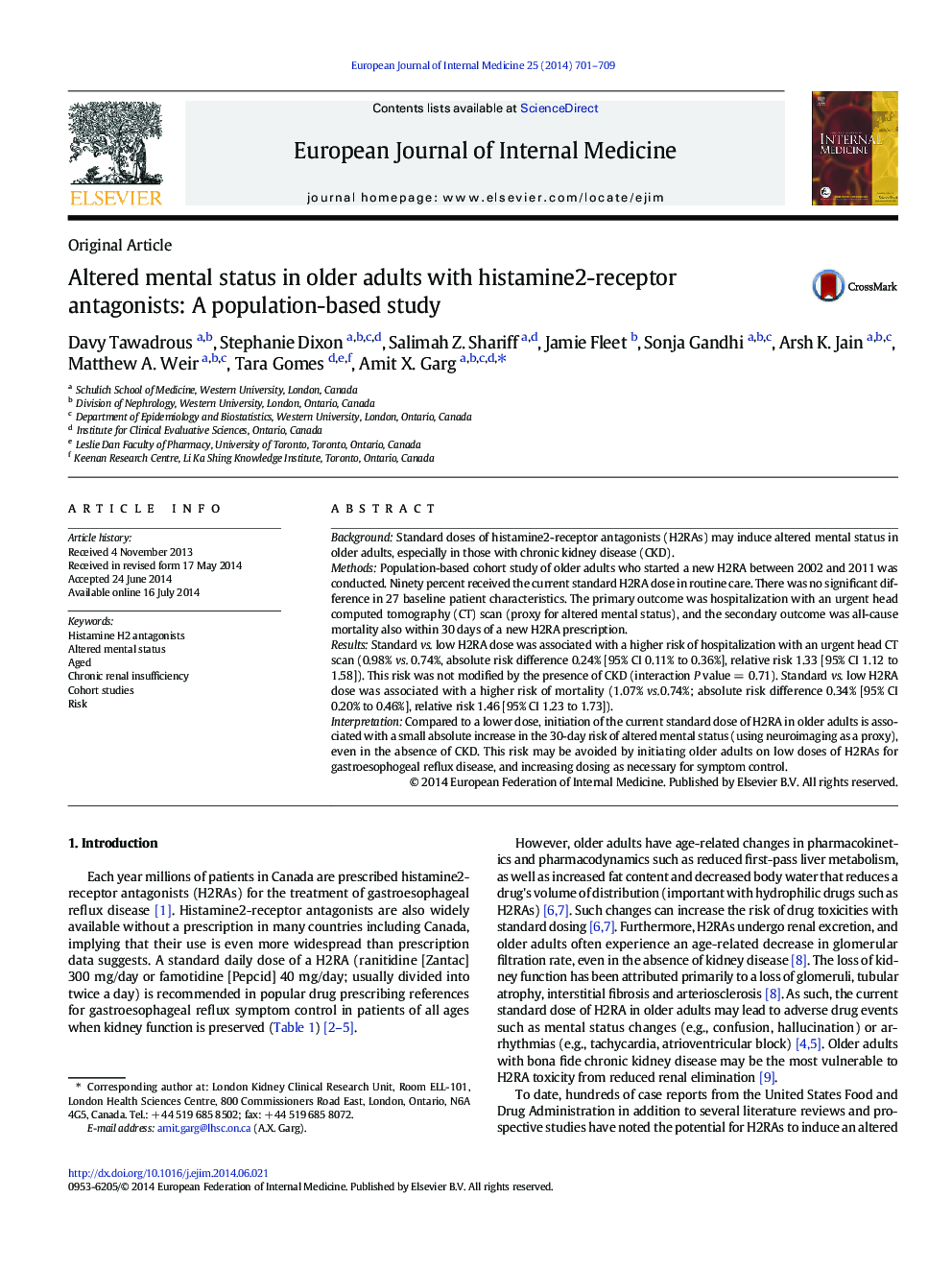| Article ID | Journal | Published Year | Pages | File Type |
|---|---|---|---|---|
| 3466171 | European Journal of Internal Medicine | 2014 | 9 Pages |
•We compare risk of adverse events in older adults on standard vs. low H2RA dosing.•Urgent neuroimaging with hospitalization as proxy for altered mental status was used.•Standard dosing was linked to increased risk of neuroimaging with hospitalization.•Older adults were recommended to start on low H2RA doses for control of GERD symptoms.
BackgroundStandard doses of histamine2-receptor antagonists (H2RAs) may induce altered mental status in older adults, especially in those with chronic kidney disease (CKD).MethodsPopulation-based cohort study of older adults who started a new H2RA between 2002 and 2011 was conducted. Ninety percent received the current standard H2RA dose in routine care. There was no significant difference in 27 baseline patient characteristics. The primary outcome was hospitalization with an urgent head computed tomography (CT) scan (proxy for altered mental status), and the secondary outcome was all-cause mortality also within 30 days of a new H2RA prescription.ResultsStandard vs. low H2RA dose was associated with a higher risk of hospitalization with an urgent head CT scan (0.98% vs. 0.74%, absolute risk difference 0.24% [95% CI 0.11% to 0.36%], relative risk 1.33 [95% CI 1.12 to 1.58]). This risk was not modified by the presence of CKD (interaction P value = 0.71). Standard vs. low H2RA dose was associated with a higher risk of mortality (1.07% vs.0.74%; absolute risk difference 0.34% [95% CI 0.20% to 0.46%], relative risk 1.46 [95% CI 1.23 to 1.73]).InterpretationCompared to a lower dose, initiation of the current standard dose of H2RA in older adults is associated with a small absolute increase in the 30-day risk of altered mental status (using neuroimaging as a proxy), even in the absence of CKD. This risk may be avoided by initiating older adults on low doses of H2RAs for gastroesophogeal reflux disease, and increasing dosing as necessary for symptom control.
